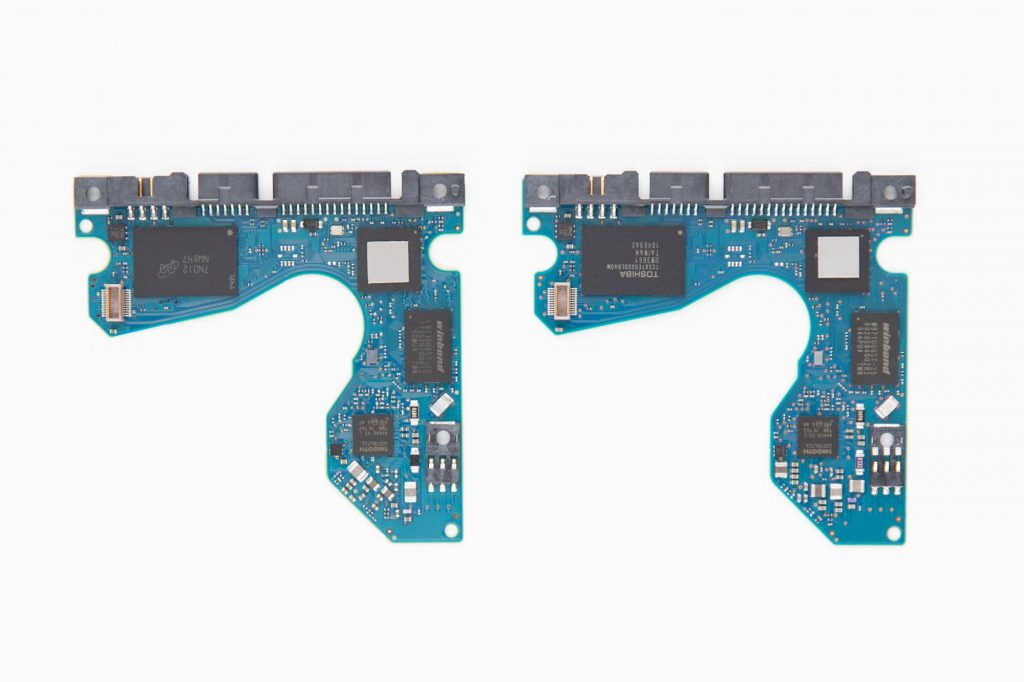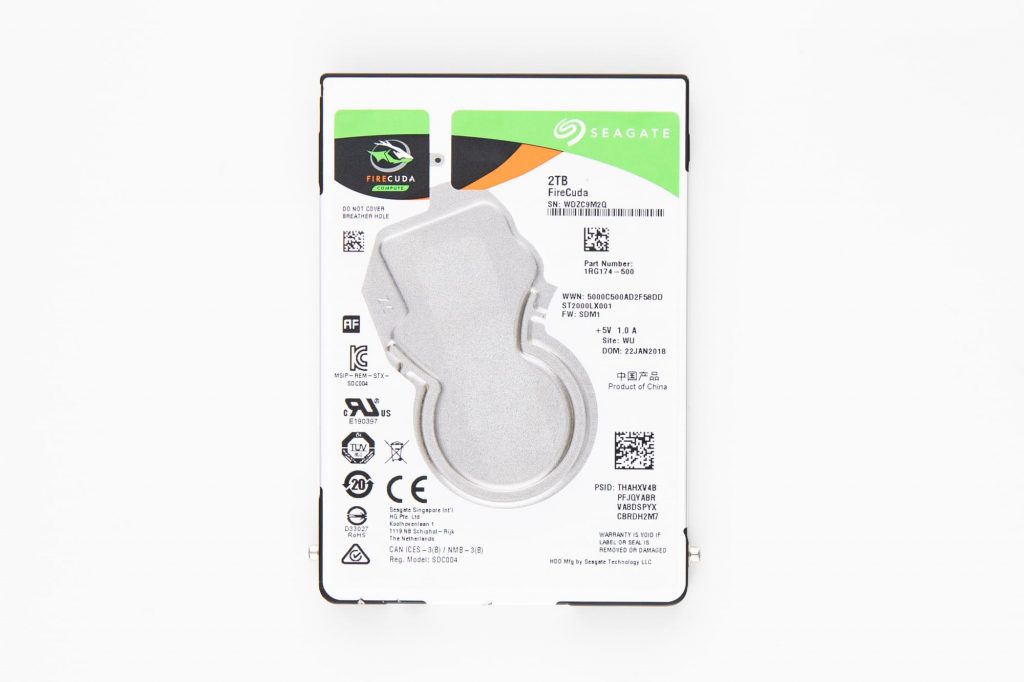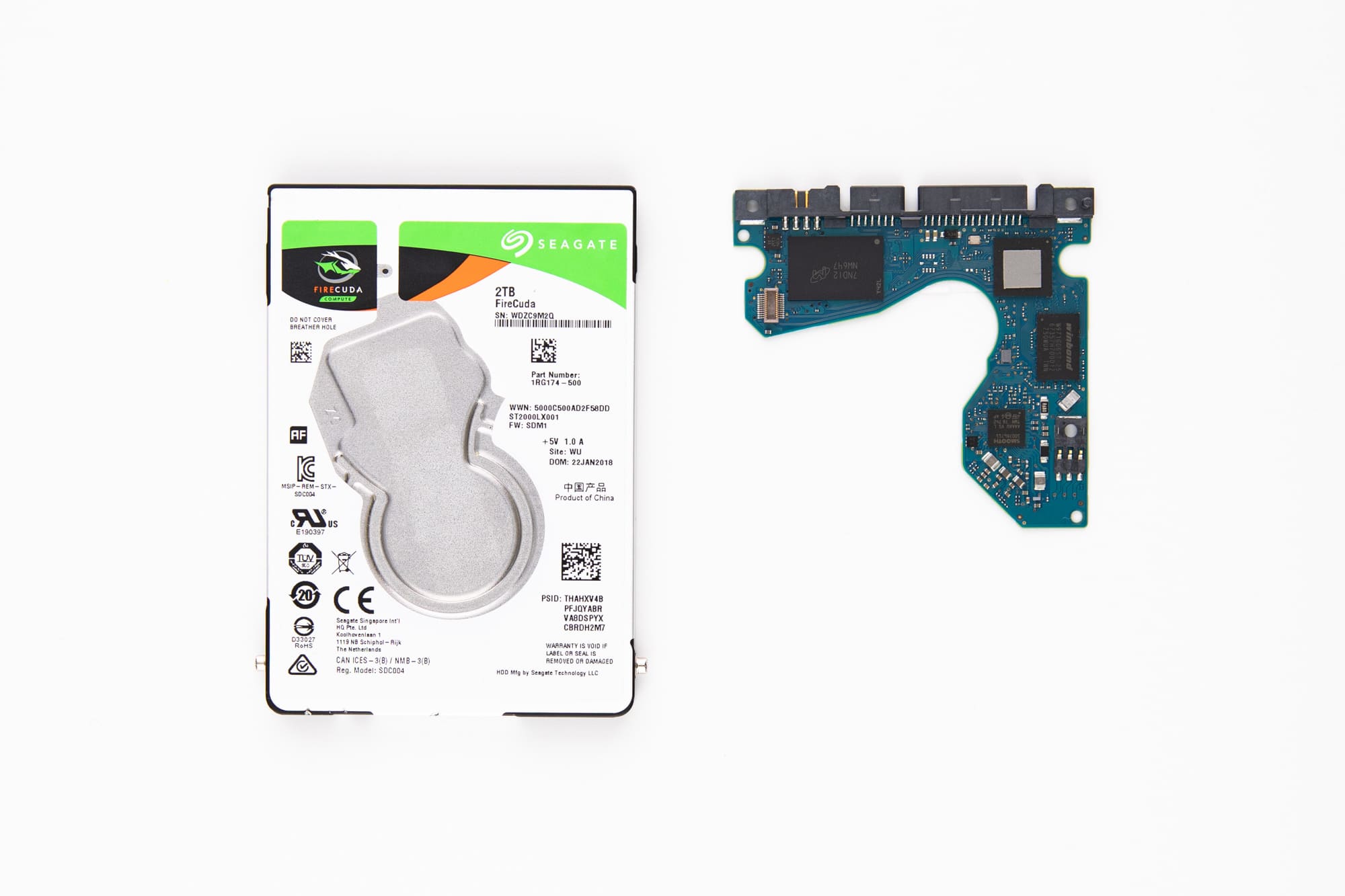Hybrid hard drives or SSHDs are not yet widespread, but they are gradually gaining popularity. It combines the properties of traditional magnetic hard drives and the well-known properties of solid-state drives with their high allowable speed.
Seagate FireCuda SSHD Data Failure
Recently, our team of technicians received a data recovery request for a hybrid hard drive. It was Seagate FireCuda 2TB SSHD installed on a gaming PC. The customer said that the computer crashed and he could not further access his data.
So, he explored the Internet looking for reliable data recovery companies and decided to entrust his media storage to us. Our data recovery experts received the PC and started the evaluation.
As the customer noted, the computer would not turn on. This our engineer proceeded with physical diagnostics.

The technician noticed that the ventilation system in his PC could not keep up with the drive’s overloading, which could cause overheating.
There are Three Types of Hybrid Systems:
- The first technique involves using two separate devices, a larger hard drive, and a smaller SSD, in a two-drive hybrid configuration.
- The second type of hybrid disk was built on the same principle as the first. Only it integrated two storage devices into one physical body. Without support, such devices would appear to the operating system as two separate drives.
- The third and final type of hybrid drives is true SSHDs. Such devices not only integrate HDD and SSD in one device but also implement all caching logic with their own microcontrollers.
Hybrid hard drives are, first of all, a compromise solution that allows both to increase the overall performance of the system in which they are installed and to reduce the price of such a system. Although this is a vague definition, it would be wrong to say that SSHD is a hard drive that has a large number of NAND flash chips to increase drive performance.
Engineers at PITS Global Data Recovery Services perform various recovery solutions on SSHD drives. They successfully complete mechanical processes and extract the lost data.
Considering the complexity of the solid-state hybrid drives, our engineer decided to unsolder the NAND chips and read their content using a hardware programmer.
The programmer is a hardware and software device designed to write/read information into a read-only memory device, flash memory, ROM, and internal memory of microcontrollers. This device connects the microcontroller and the computer, allowing our engineers to upload the firmware file to the controller’s memory from the computer.
SSHD Damaged PCB Data Recovery
Our specialist unsoldered the memory chips from the Seagate FireCuda and connected them to the hardware tool. After he made sure that the chips were correctly attached, he started to extract the data. Then the engineer assembled a logical image of the drive from the received data. This approach is currently used in data recovery from USB flash drives and various memory cards.

The overheating in the SSHD damaged the PCB of the SSD, and the hydrodynamic bearings leaked grease; thus, the drive failed.
The inspection was finished, and failures were detected. After receiving approval from the customer, our engineer started the recovery process.
These are The Problems That Our Engineer Faced Extracting the Data:
- Bit Errors
- Memory Chip Page Format
- Encryption
- Building an Image
All of the issues were solved, and the data from the NAND chip were successfully extracted.
Hybrid Hard Drive Ball Bearings Failure
Modern hard drives use fluid, i.e., hydrodynamic bearings. Instead of balls, special oil absorbs shock loads, increasing the drive’s motor durability.
Because there is no contact between moving parts, there is no sliding friction, allowing fluid bearings to have lower friction, wear, and vibration than many other types of bearings.
As in the client’s case, the fluid leaked out due to constant overheating the motor could not be fixed. Our engineer had to transfer the magnetic platters to the same model hard drive and extract all the available data. The technician accessed 99.96% files and transferred them to new media storage. The customer reviewed the results and approved them, and we shipped his PC and data back on a new SSHD drive.
Fill out the request help form to start your recovery case today. Or call our customer service line at (888) 611-0737 for a consultation about your particular case.
